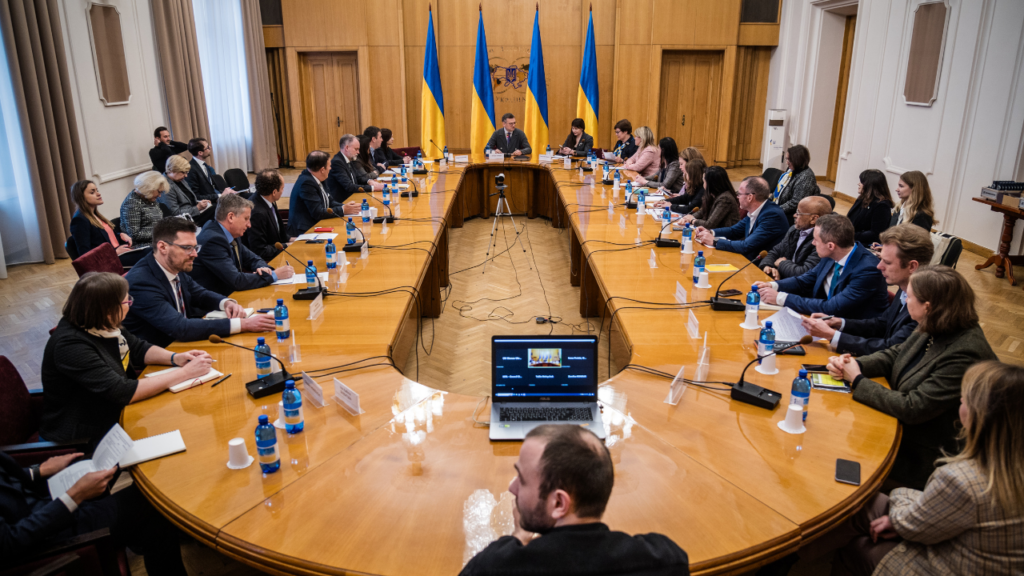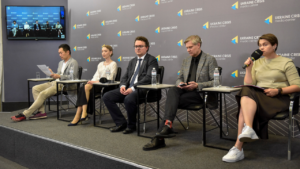The Media Initiative for Human Rights joined the Council on Human Rights, Gender Equality and Diversity at the Ministry of Foreign Affairs of Ukraine

Olga Reshetylova, the head of the Media Initiative for Human Rights, took part in the inaugural meeting of the council.
The creation of such a board was announced last month by the Minister of Foreign Affairs Dmytro Kuleba. At the time, he said that the expert council would coordinate the efforts of civil society, business and Ukraine’s international partners to ensure human rights, including equality and non-discrimination.
During the first meeting of the council, Kuleba added that the war unleashed by Russia is, in particular, a war of values: “The so-called ‘Russian world’ is a monotony in which there is no one but Russians and nothing but hatred. Ukraine remains committed to the values of human rights, gender equality and diversity. The Ukrainian world is about diversity and the freedom for everyone to be themselves and fulfill themselves.
Russia has been grossly violating basic human rights for years, both on its own territory and in the temporarily occupied territories by it in Ukraine, Georgia and Moldova.
The Kremlin systematically suppresses the rights of indigenous peoples and national minorities, interferes with the right to freely express and demonstrate their religious beliefs, and threatens the rights of the LGBTQ+ community, which has recently been declared an “extremist movement” by their Supreme Court.

Dmytro Kuleba, Minister of Foreign Affairs. Photo by: Ministry of Foreign Affairs of Ukraine
The meeting was attended by representatives of the government, embassies, missions and agencies of the UN, UNESCO, other international organizations, and representatives of the civil society in Ukraine. During its first meeting, the council declared four main prioritized areas which will be the main ones:
- protection of fundamental human rights in the territories of Ukraine temporarily occupied by Russia;
- protection of the rights of Ukrainian children, especially those illegally deported and forcibly transferred to Russia;
- return of civilian hostages and prisoners of war;
- global threats to gender equality.
“The Council does not aim to duplicate existing human rights coordination efforts,” said Kuleba. “We see the Council as a living, effective mechanism, a platform for exchanging views and finding innovative solutions.

Photo by: Ministry of Foreign Affairs of Ukraine
The Media Initiative for Human Rights is ready to support the efforts of the Council and the Ministry of Foreign Affairs, in particular in the issues of releasing civilian hostages and prisoners of war. With the support of the “Ukraine 5AM” Coalition, we have developed potential mechanisms for the release of civilian hostages and are ready to present them to stakeholders.
We would like to remind you that MIHR has also developed an online map of places where Russia is holding Ukrainians. It currently includes about 120 locations. Ukrainians are constantly tortured there, and their conditions do not meet any standards.






